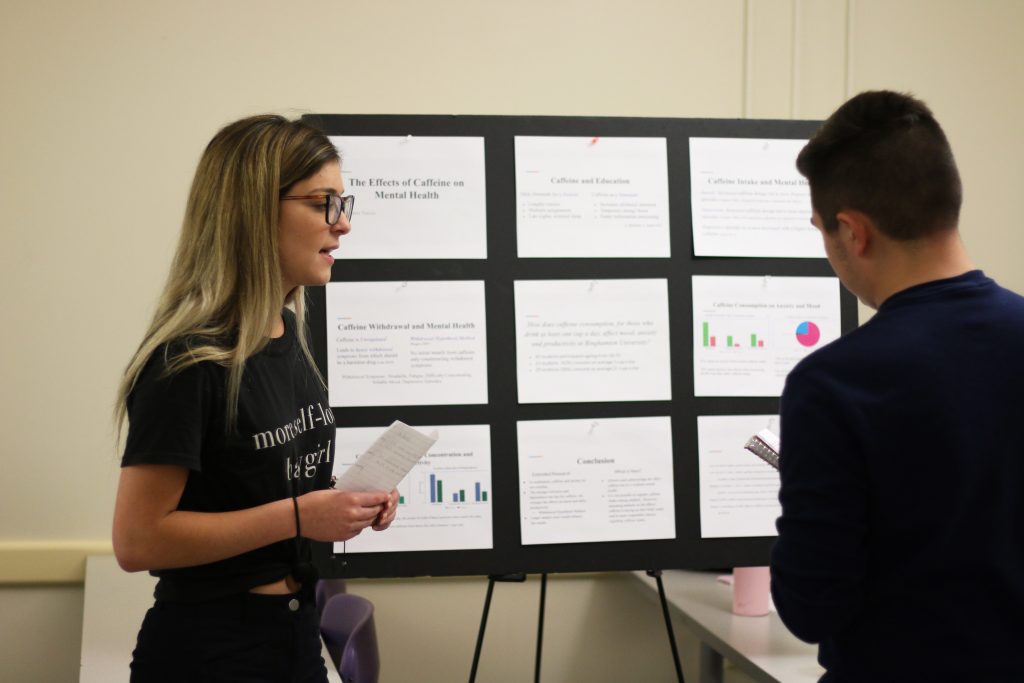
Mental health and its relationship to education was the focus of the Mental Health Exposition held on Wednesday afternoon in the University Union.
The event featured the research of students in Education 411: Mental Health in Education and was sponsored by Alpha Phi Omega, a coed service fraternity.
According to Tracy Lyman, a lecturer of teaching, learning and educational leadership, students in the class chose a topic related to mental health and education, then looked at past research on that topic and collected their own data and information, either through surveys or speaking to education professionals. The exposition, which happens at the end of every semester, showcased the students’ findings.
“We like to raise awareness and it provides an opportunity for students to share and present their information and just get the community talking more about mental health and hopefully break some stigma as well,” Lyman said.
Research topics included the effects of creative expression, recess and social media on students and their learning. Mental Health Outreach Peer Educators (M-HOPE) and SEEK, formerly known as the High Hopes Helpline, were also present at the event.
Sabrina Jorge, a senior majoring in philosophy, politics and law, researched Positive Behavioral Intervention and Support (PBIS), an initiative funded by the U.S. Department of Education’s Office of Special Education Programs, which creates a multitiered approach to social, behavioral and emotional support. Tier one is preventative and creates a reward system to teach appropriate behavior to all students. Tier two aims to identify students who need additional behavioral support. Tier three is for kids who may need teachers’ aides.
According to Jorge, PBIS involves many simple practices, such as checking in with children about how they feel. Jorge said she believes the PBIS model has many benefits.
“I think it would boost the graduation rate of not just all kids but special education students,“ Jorge said. “I think it would just benefit the kids. It boosts their confidence, teaches them how to seek the help they need — and they’re succeeding.”
According to Jorge, about 20,000 to 30,000 schools nationwide implement PBIS. Although it is used in few schools, she said knowledge of the initiative and funding to implement it could help expand the program.
“I think maybe they just don’t know about it,” Jorge said. “Also, I read an article and in a lot of places there isn’t enough funding for programs like these.”


